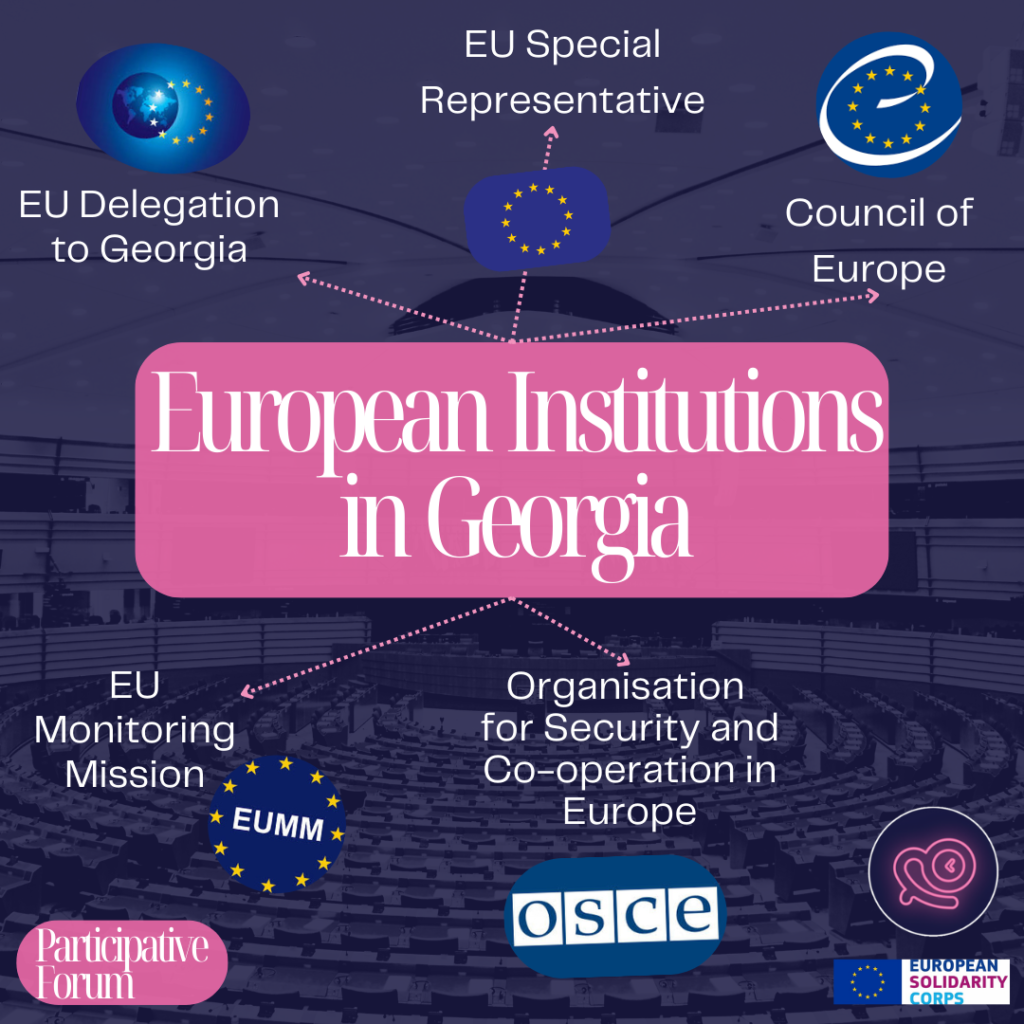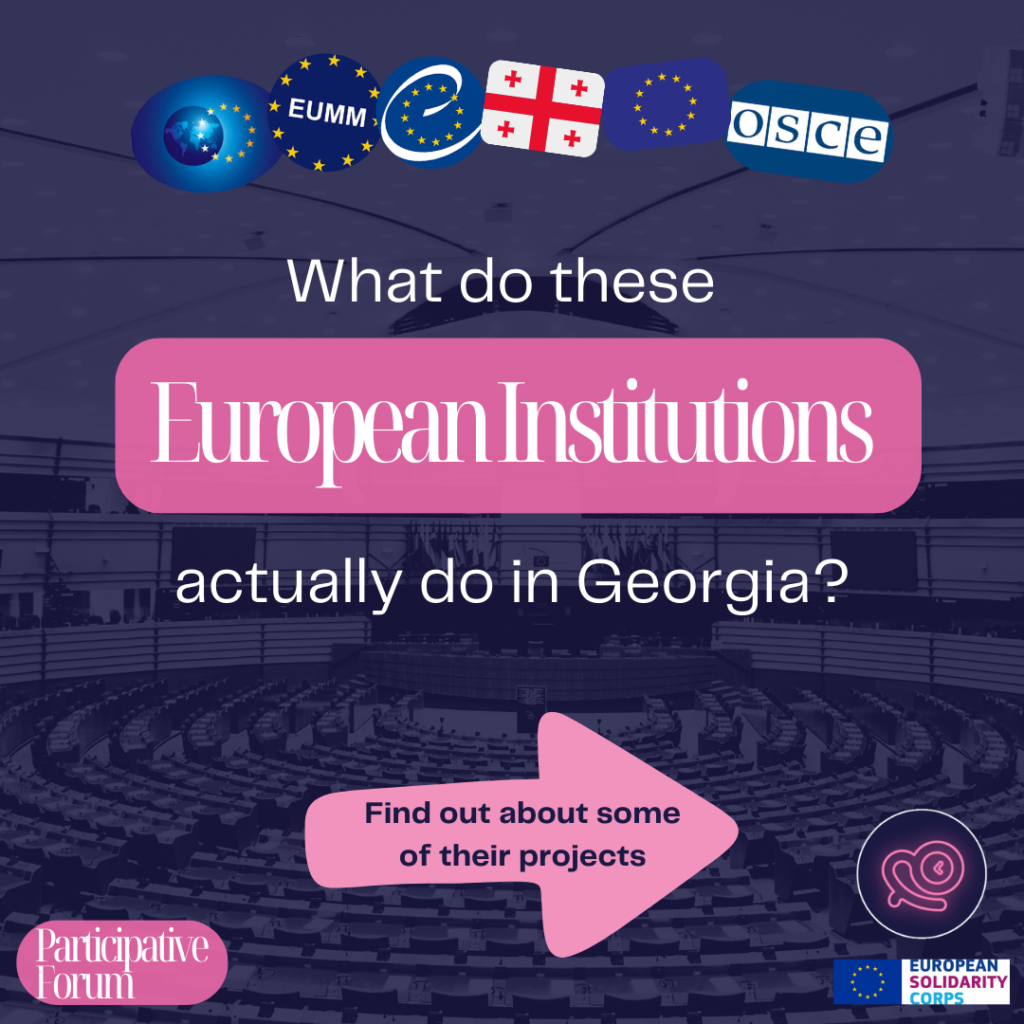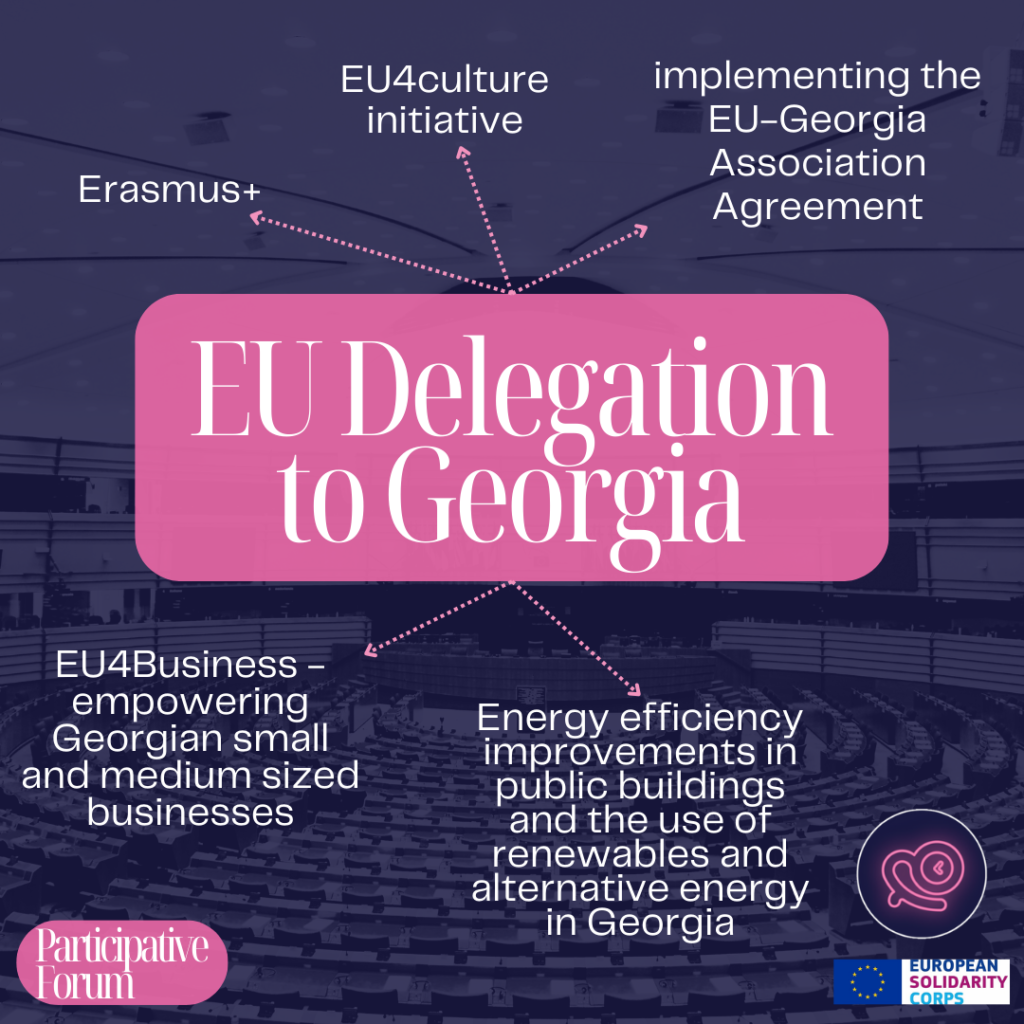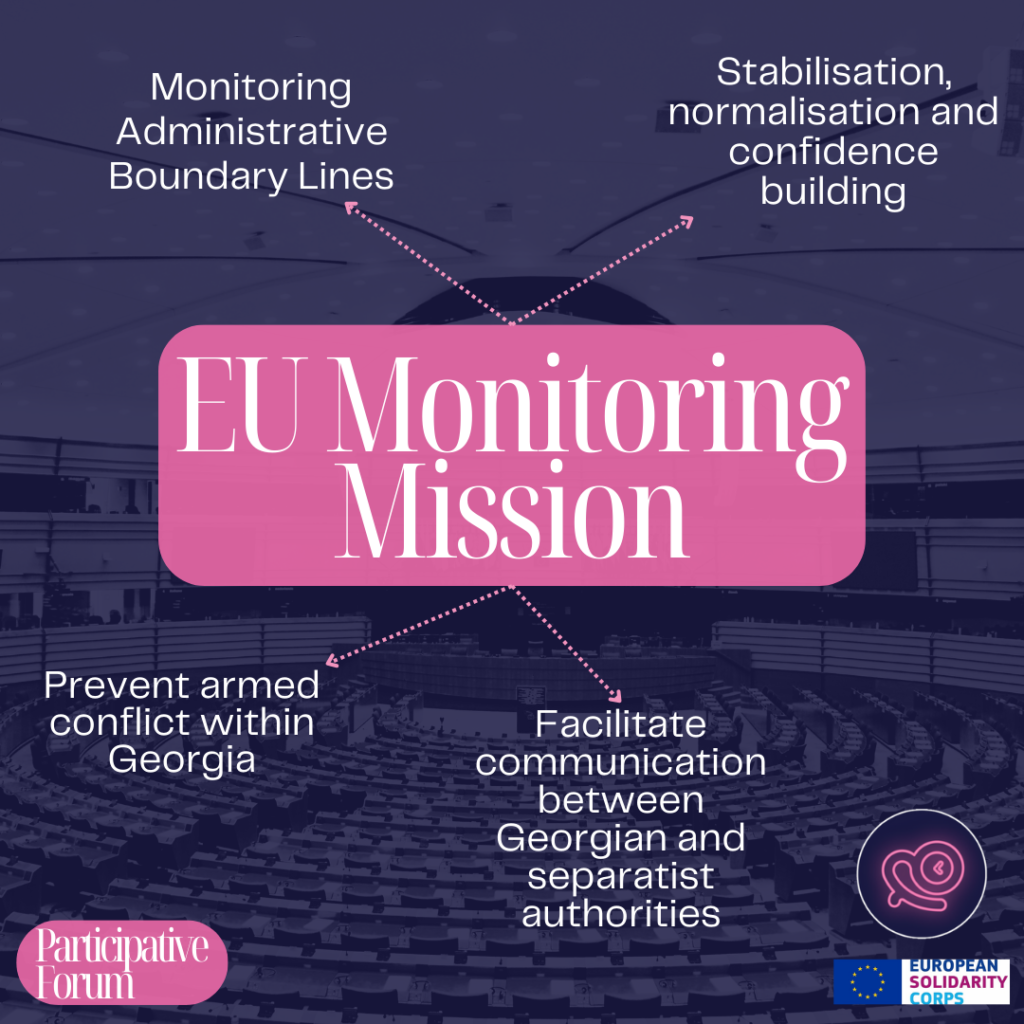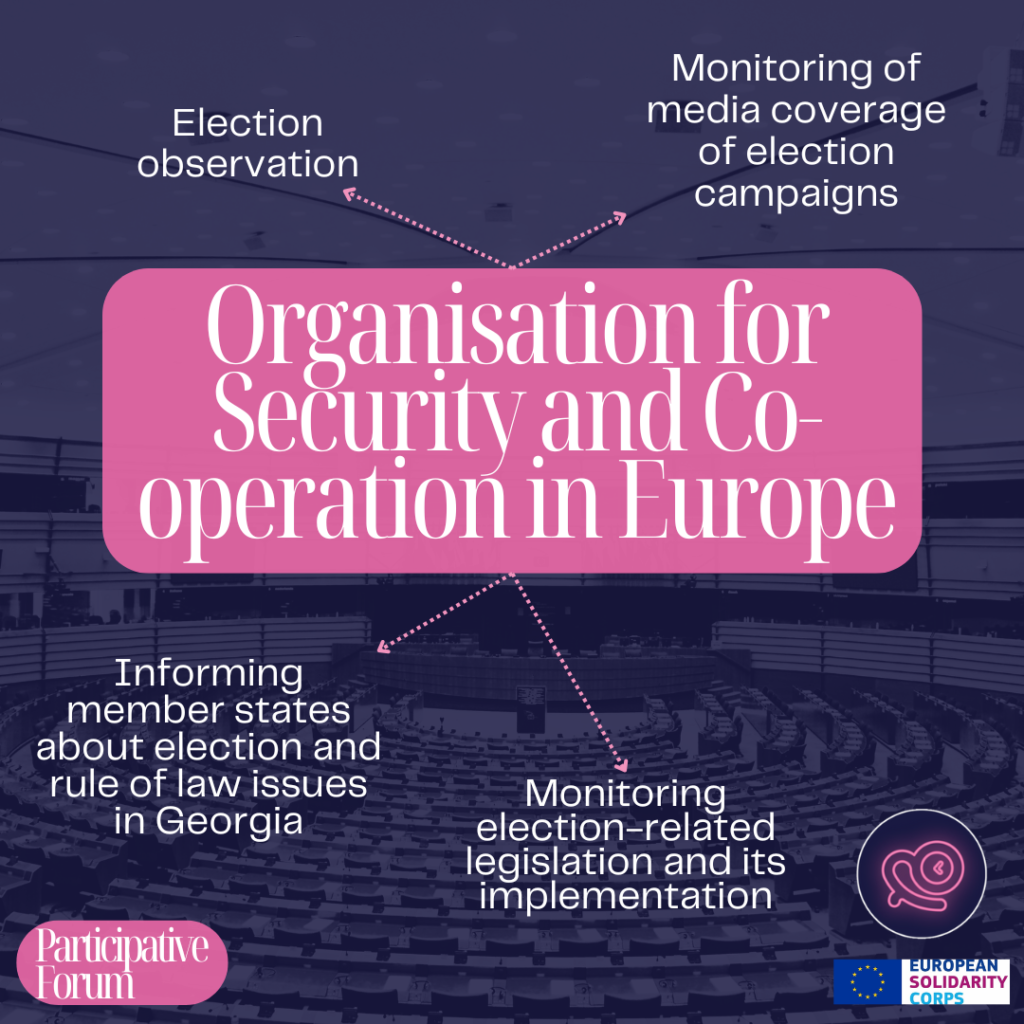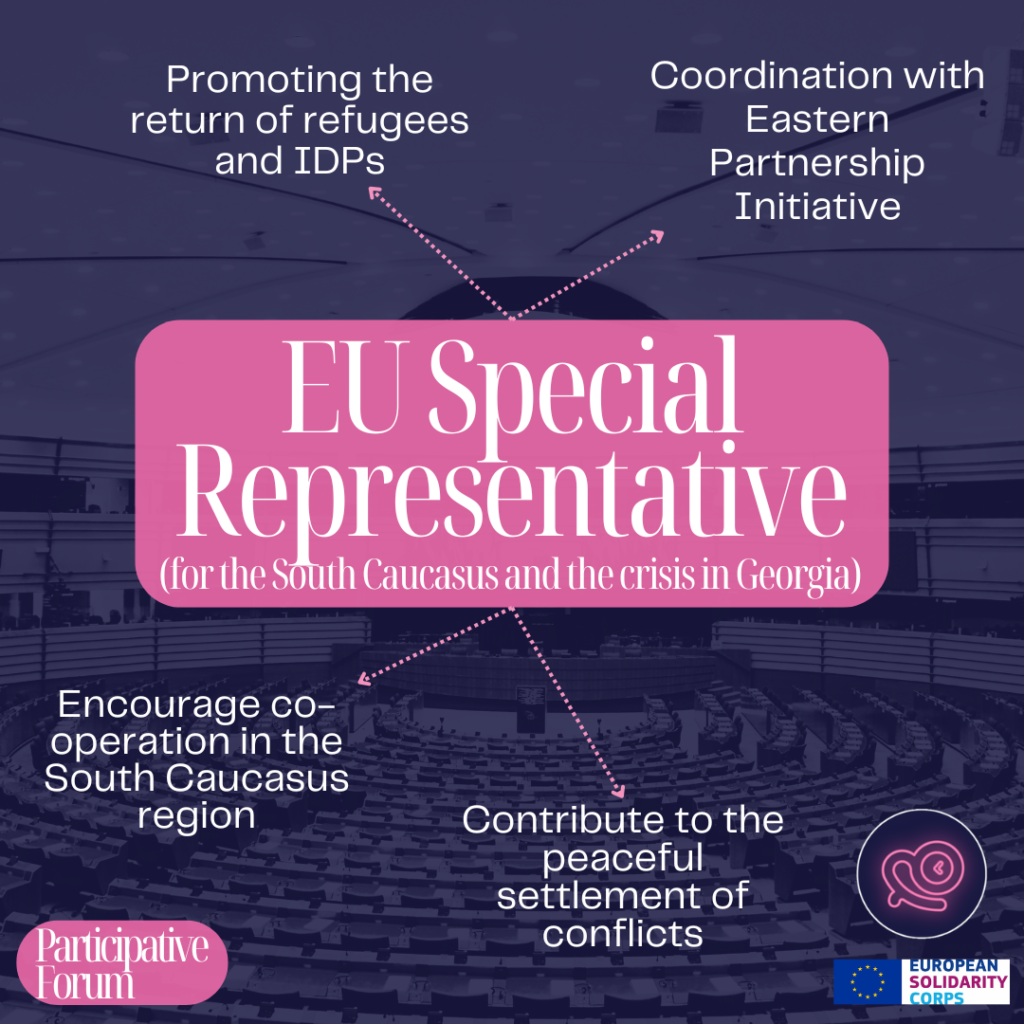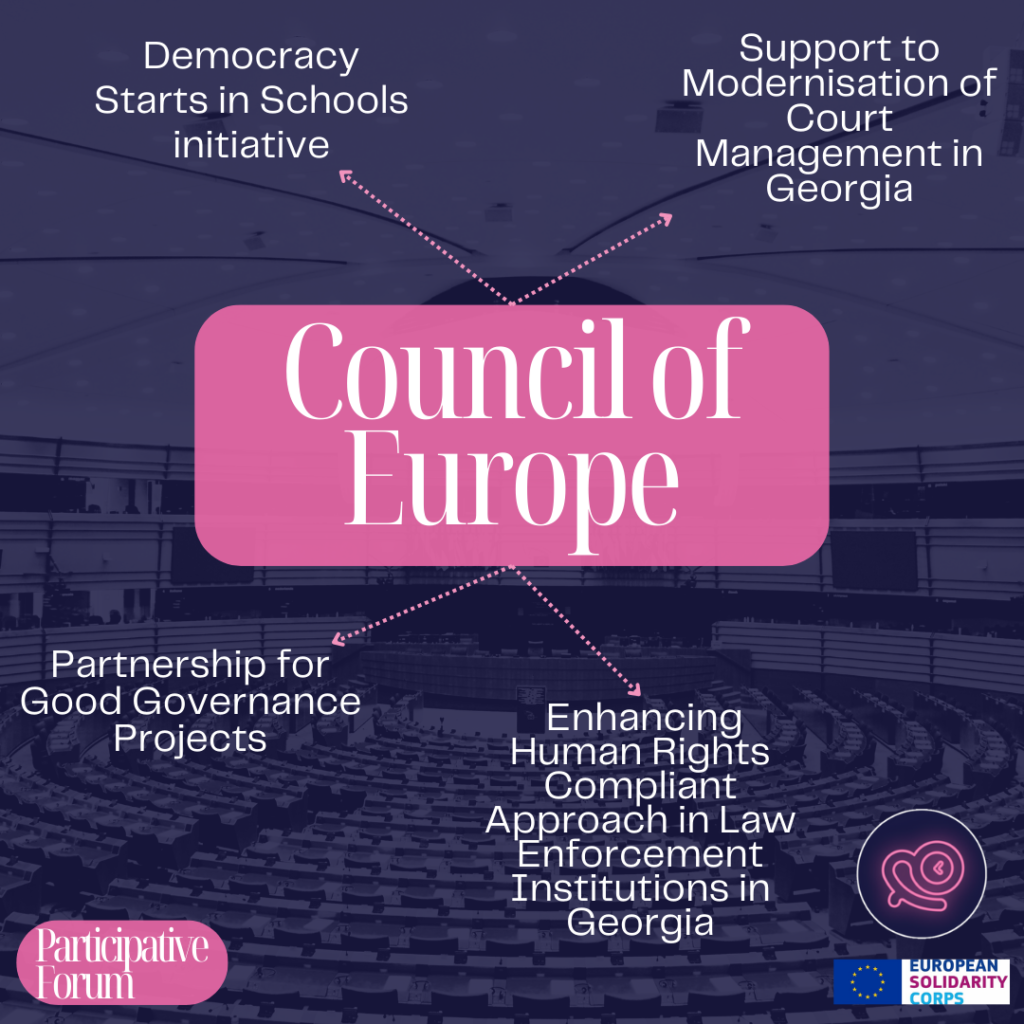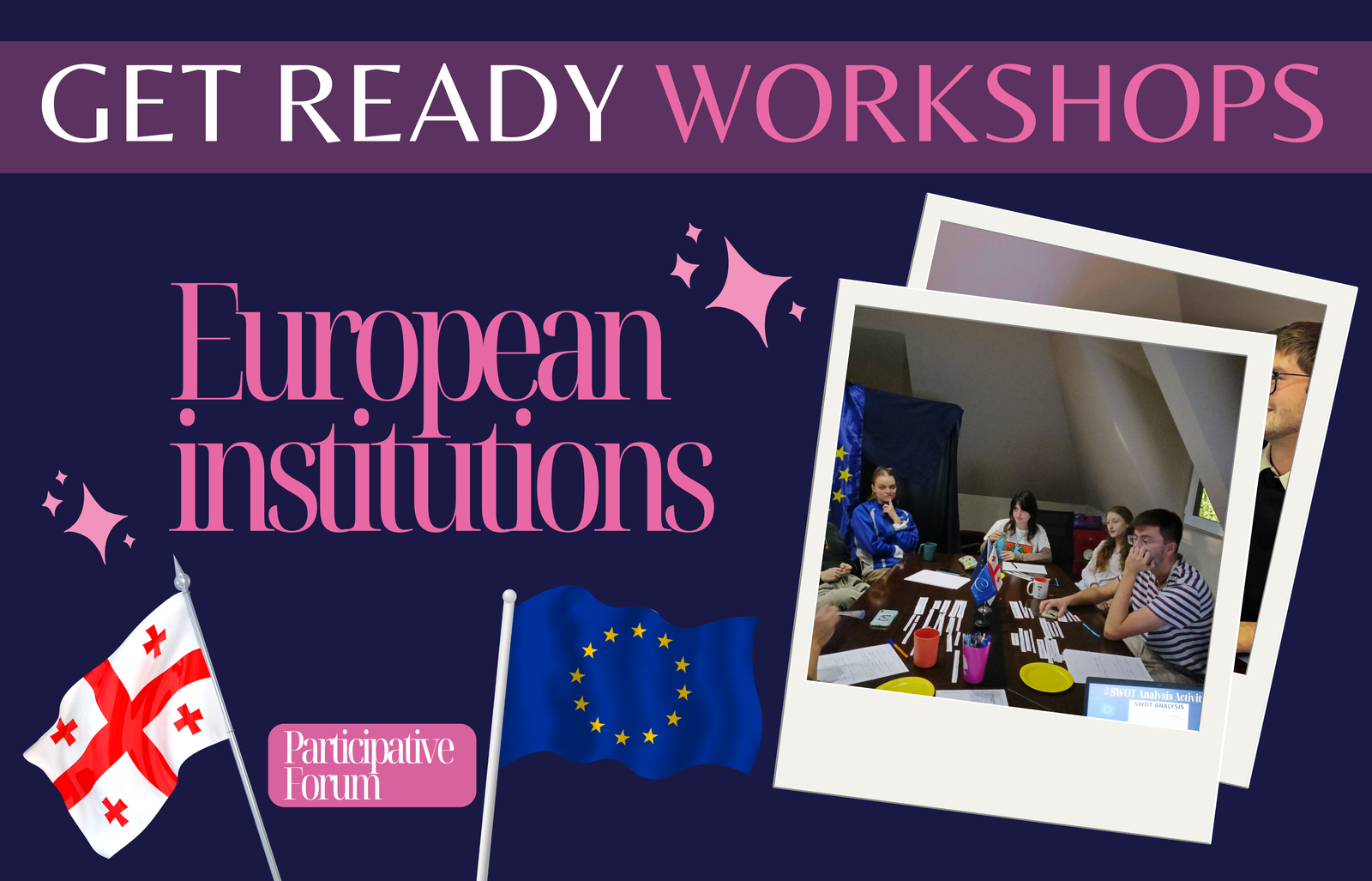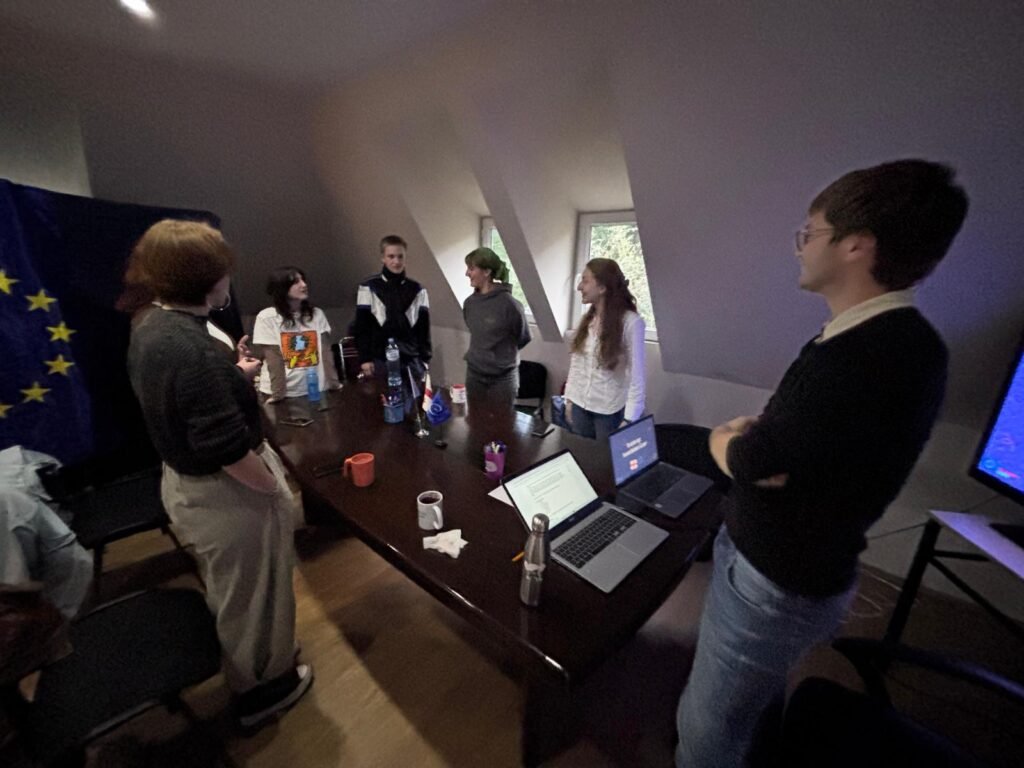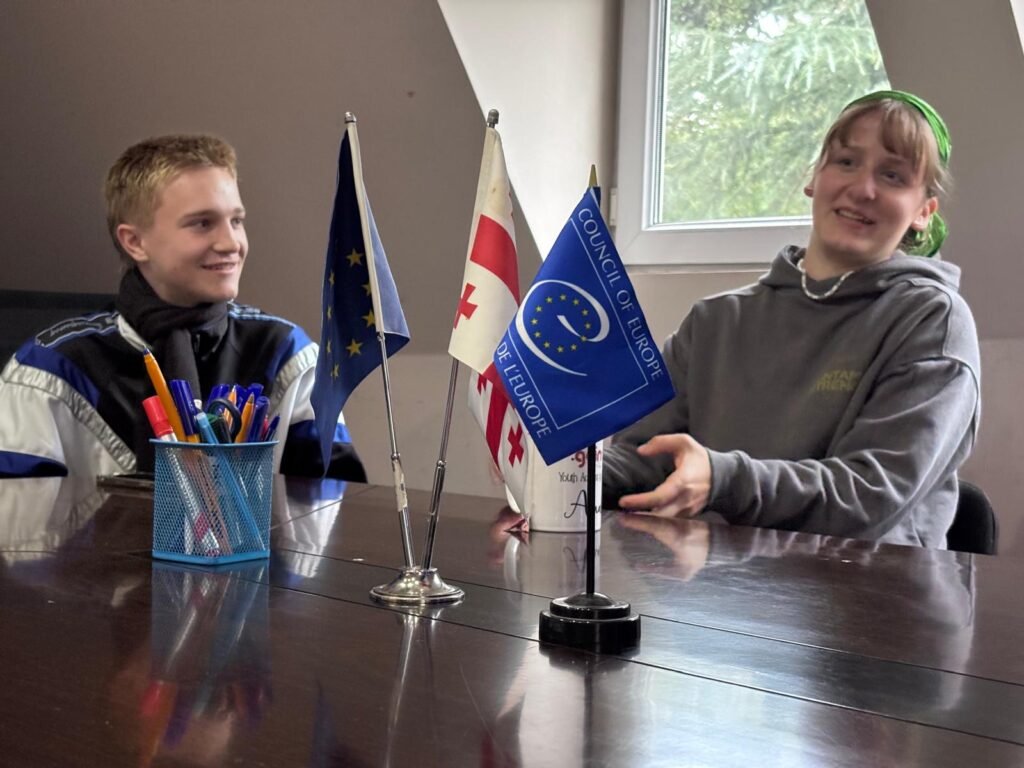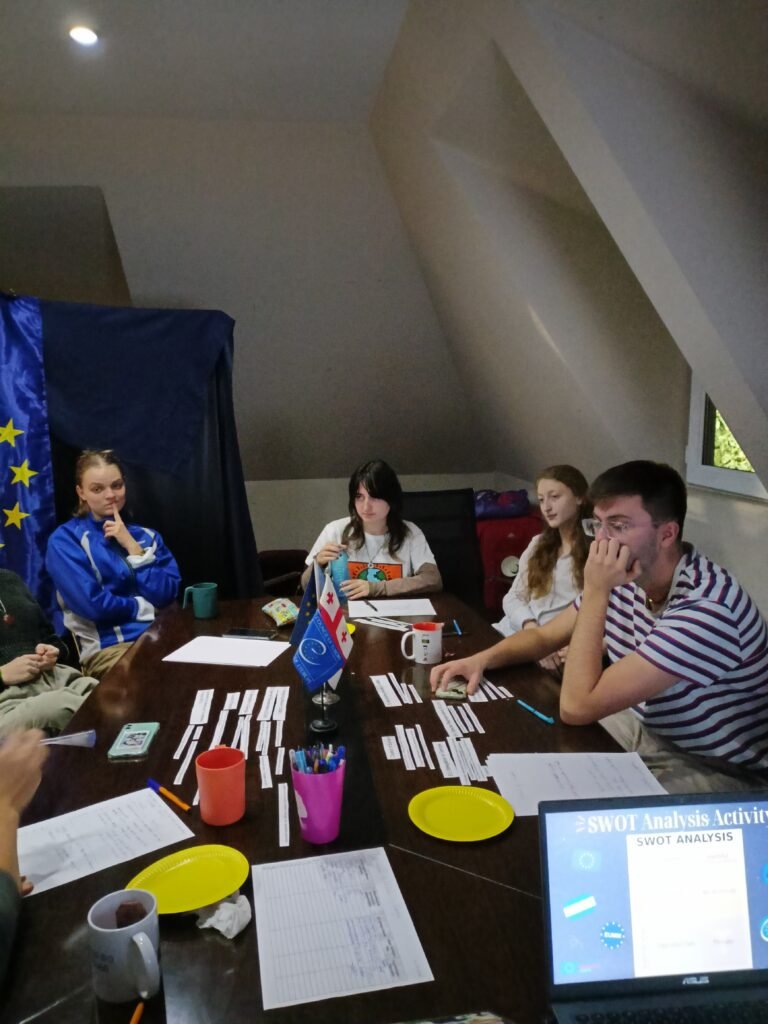On 24 October, our volunteer Fynn conducted the interactive workshop European Institutions in Georgia. This event aimed to provide the participants with a general understanding of European institutions’ activities in Georgia, exploring how their projects and initiatives affect the country’s progress and integration into the European community. Read this report to see how it went:
The workshop began with a quick association game to break the ice and get participants thinking about themes like Europe, institutions and human rights. This activity set the tone, allowing participants to share their initial thoughts and assumptions on the topic in a lighthearted way.
Next up was a brief but comprehensive theoretical section on the main European institutions active in Georgia, including the Council of Europe, EU Delegation to Georgia, EU Monitoring Mission, EU Special Representative and OSCE. Participants learned about each institution’s history, objectives and significance in the region, gaining foundational knowledge that prepared them for the main activity.
The main part of the workshop was an interactive group exercise divided into two parts, with participants grouped into smaller, mixed-nationality teams to encourage diverse perspectives.
First, each team received a set of cards representing projects that European institutions either manage, fund or support in Georgia. Teams were tasked with matching these projects to the appropriate institutions. This activity sparked interesting discussions as participants debated which institution might be involved in areas like human rights, democratic reforms or economic development. Furthermore, the participants had the opportunity to connect their previously gained theoretical knowledge with the European institutions’ actual presence in Georgia.
In the second part, each team was assigned one of the institutions to conduct a SWOT (Strengths, Weaknesses, Opportunities and Threats) analysis. Teams analyzed their assigned institution’s role in Georgia, identifying areas where they are strong, potential weaknesses, opportunities for growth, and challenges they may face in the region. This exercise allowed participants to critically assess each institution’s contributions and role in Georgian society. The teams then presented their findings, allowing participants to gain deeper insights into each institution’s specific impact.
If you want to find out more about the topic yourself, have a look at these infographics!
